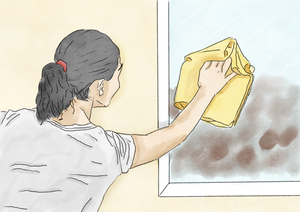
7.2 Beyond stigma
Schizophrenia and substance use disorders are among the most stigmatized mental health conditions.

7.2 Beyond stigma
Schizophrenia and substance use disorders are among the most stigmatized mental health conditions.
People living with these conditions often face negative stereotypes, with many perceiving them as dangerous, unpredictable, or less capable than those with other mental health issues.
This stigma leads to discrimination, fear, social avoidance, and rejection.
Public attitudes differ between the two conditions
Attitudes toward these conditions differ significantly. Individuals with substance use disorders (SUD) are often blamed for their illness, and seen as having personal failings, which leads to anger and reluctance to offer help.
In contrast, those with schizophrenia are more likely to be recognized as having a legitimate mental illness, with many supporting the idea of forced treatment.
Unfortunately, stigma has severe consequences for both groups. It creates barriers to employment, increases social isolation, lowers self-esteem, and discourages people from seeking treatment.
Reducing stigma and its resulting discrimination is essential for improving the overall well-being of those living with these conditions.
How caregivers can combat stigma while supporting loved ones
Caring for someone with both schizophrenia and substance use disorder can be particularly challenging. However, recent studies provide evidence-based strategies to help caregivers combat stigma and provide meaningful support:
EDUCATION AND PSYCHOEDUCATION.
Understanding the symptoms and treatment options for schizophrenia and substance use disorders helps caregivers better manage their loved one’s condition more effectively. Educated caregivers can also combat misinformation and stigma, benefiting both themselves and their loved ones.
EMOTIONAL AND PSYCHOLOGICAL SUPPORT.
Caregivers often experience “affiliate stigma“, feeling the effects of the stigma directed toward the person they care for.
FAMILY-BASED PSYCHOEDUCATION PROGRAMS.
have been shown to reduce stress, improve coping strategies, and lessen stigma’s impact, leading to better caregiving experiences.
ACCESS TO COUNSELING AND PEER SUPPORT.
Caregivers may struggle with feelings of isolation, guilt, or burden. Support groups and counseling provide essential relief, fostering resilience and ensuring the sustainability of long-term caregiving.
ADVOCATE FOR RECOVERYORIENTED SERVICES.
Encouraging the use of recovery-oriented services that integrate both mental health and addiction treatment can reduce stigma and improve outcomes. Collaborating with professionals and peer workers who understand the recovery model is essential. This also involves advocating for policies that provide holistic and integrated care, which can ease the stigma surrounding these dual conditions.
COPING STRATEGIES AND STRESS MANAGEMENT.
Research shows that caregivers with strong coping mechanisms and social support networks experience lower stress levels. Prioritizing self-care, seeking respite when needed, and understanding what to expect from the healthcare system can help caregivers manage stress and reduce the stigma they encounter.
By staying informed, advocating for better care, and prioritizing their own well-being, caregivers can play a vital role in breaking down stigma and improving outcomes for their loved ones.